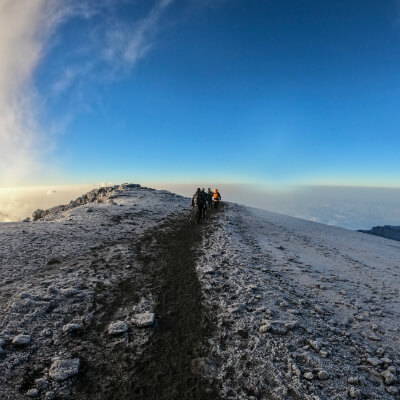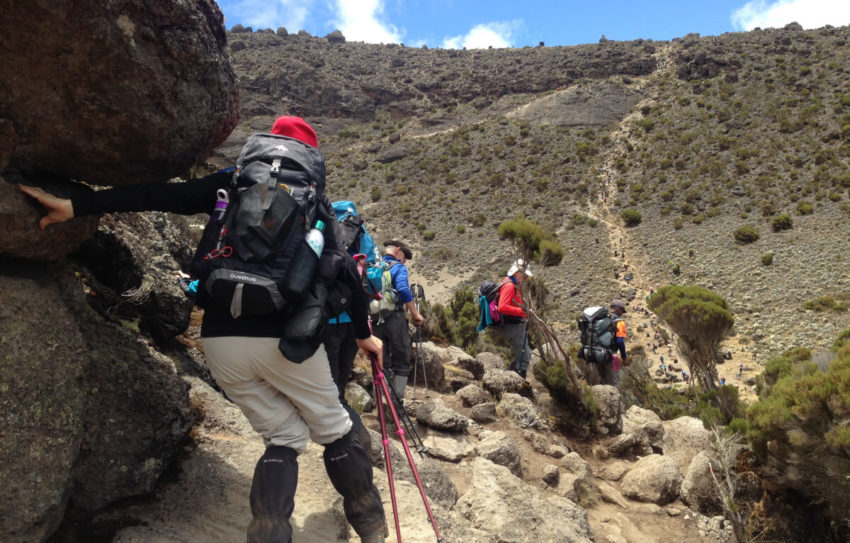Maasai Mara Budget Camping Safari
Visit Africa’s Greatest Animal Reserve
4-Day Kenya Wildlife Safari
3 Days Maasai Mara Budget Camping Safari
The Maasai Mara National Reserve or the Mara as its popularly known boasts for sheltering various wild animals such as the lion, cheetah and other animals that annually migrate to and from Tanzania to the Masai Mara like the gazelles, wildebeest, zebras and many more. During a game drive, you are likely to view the Big Five which is something most tourists coming to Kenya hope to see.
Important Details
Price
$ 0.00 USD
Meeting point
This tour starts and ends in Nairobi
Tour Features
- Budget tour
- Shared tour
- Can start any day
- Cannot be customized
- Suitable for single travelers
- Minimum age of 3 years
Duration
3 Days
Group size
2 min. – 12 max.
Included
- Park fees
- Activities
- All accommodation
- A professional driver/guide
- All transportation
- All Taxes/VAT
- Meals
- Drinking water
What's Extra
- Personal Expenses
- Souvenirs
- Food, Drinks, Snacks
Meals
All of our meals are freshly prepared on the mountain by our talented chef, so when we arrive to camp after a long day of hiking, we have a delicious hot meal waiting for us.
Please note: we can accommodate any dietary needs, so please let us know what your meal requirements are and we will be sure to have our chef whip you up something yummy!
About your guide
All of our guides have extensive experience and training, certification, and knowledge of the area and all of the routes.
Highlights
Wildlife in Masai Mara NR
Elephant Common
Giraffe Common
Lion Common
Cheetah Common
Zebra Abundant
Wildebeest Abundant
Itinerary
Masai Mara Budget Camping Safari
Day 1: Nairobi - Masai Mara National Reserve
Departing from the capital of Kenya, Nairobi, we will drive down the escarpment via the floor of the scenic Great Rift Valley. We'll arrive at our overnight camp in time for lunch in the afternoon.
Located near the Masai Mara National Reserve, our safari camp is tucked away in the cool shade of indigenous trees, offering an escape from the African heat. We will stay in tented camps that are self-contained.
This afternoon, we'll explore Masai Mara on our first game drive, getting a taste of what this legendary game park has to offer. In the night, you can hear a chorus of different animal sounds as they communicate with each other in the darkness. This is more than enough reason to visit.
Day 2: Masai Mara National Reserve Game Drives
After breakfast, you'll proceed on a full day of game viewing at the Maasai Mara Reserve. You'll have your picnic lunch at the Hippo Pool. Dinner and your overnight stay will be at the campsite.
Our morning and afternoon game drives take us in search of Africa's Big Five and the plethora of other wildlife inhabiting this vast Kenyan game reserve. On clear days, the Masai Mara offers fantastic orange tinged sunsets well-worth capturing on camera. The Masai Mara Game Reserve is 1510km² of incredible wide-open landscapes and fertile riverine woodland following the looping meanders of the Mara and Talek Rivers in Kenya. One glimpse is enough to explain its appeal; it is typical open savannah, with a mass of amazing wildlife.
Day 3: Masai Mara Full Day Game Adventure
Another full day is spent in the Mara Reserve. This day you have the option of going to visit the Maasai village to learn more about their culture. All meals and your overnight stay will be at the campsite.
Wherever you go in the vast Masai Mara you will see a good number of wildlife such as Maasai giraffes, baboons, warthogs, bat-eared foxes, grey jackals, spotted hyenas, topis, impalas, hartebeests and wildebeest. Elephants, buffaloes, zebras and hippos are also found in great numbers. It is also common to see lions either basking after a heavy meal, or surveying the plains for their next meal. Cheetahs and leopards are harder to spot, but reasonably common. The ultimate action here is without doubt the annual wildebeest exodus, the great migration. It happens in July and August when millions of these grass eaters move north from the Serengeti in search of lusher grass before turning south again in October.































